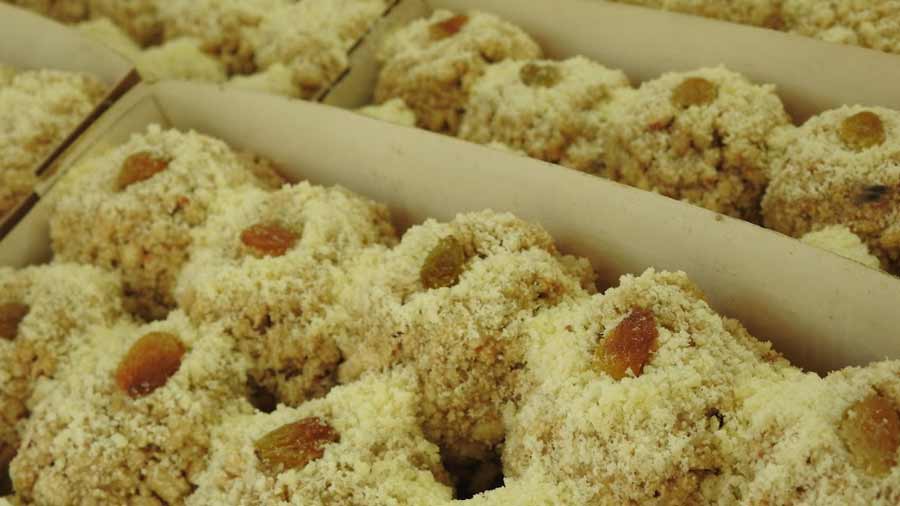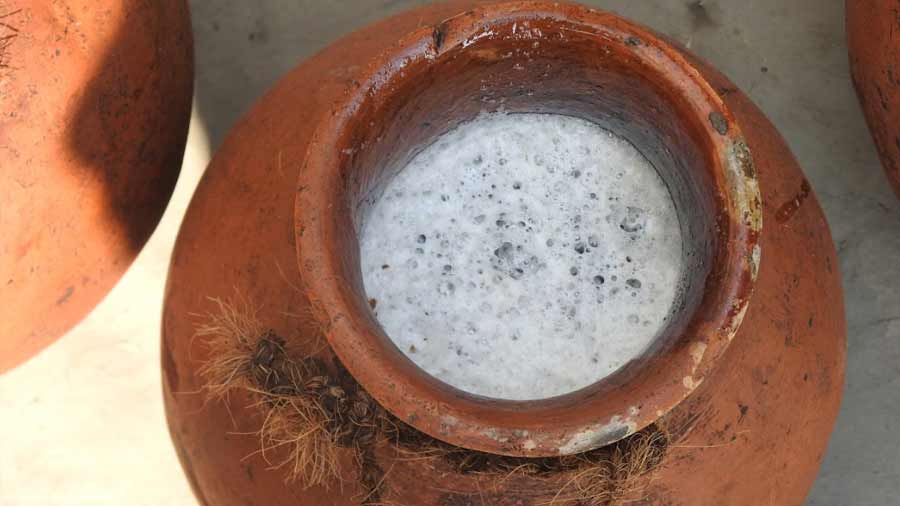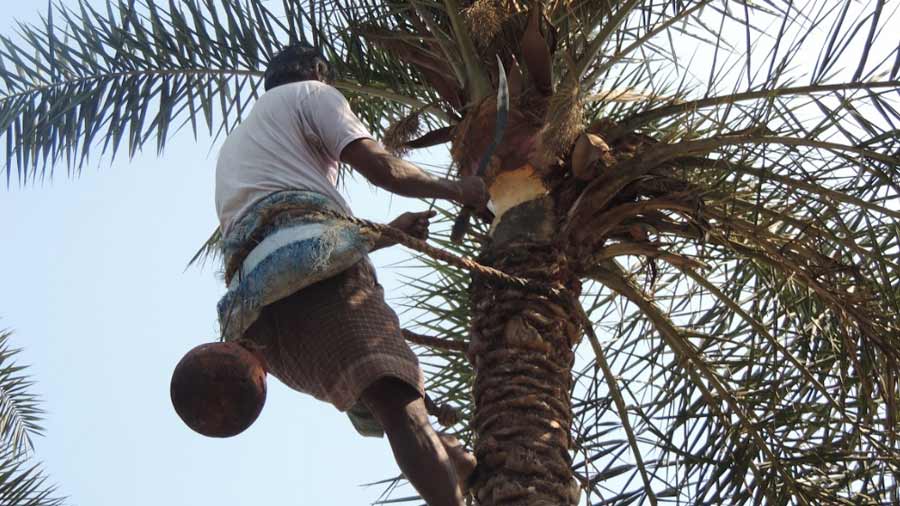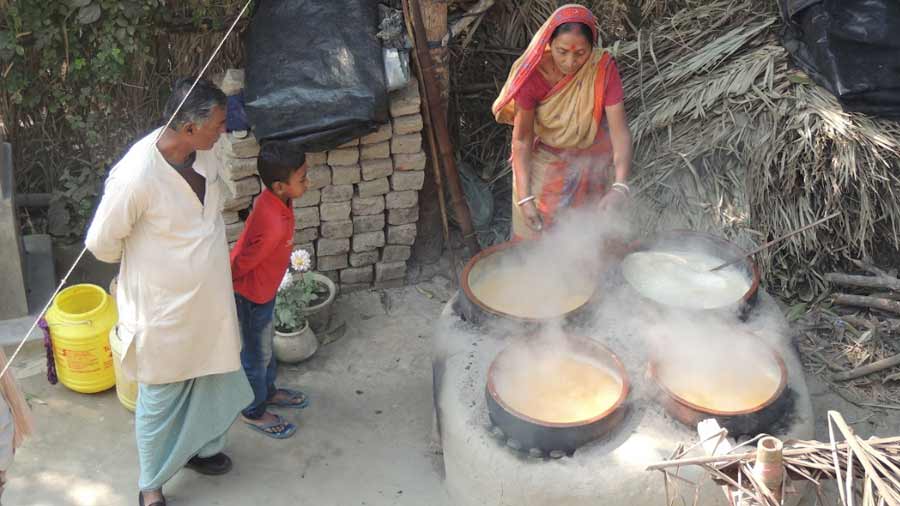The changing climate and regular cyclones are taking a toll on Bengal’s favourite winter sweets.
The average annual production of nolen gur, or date palm jaggery, which lends its signature taste and flavour to sweets in winter, dropped as much as 30 per cent last winter in Joynagar and adjacent areas, the region that has traditionally produced the best quality of nolen gur. The situation has remained the same so far this winter.
The slide in the production of nolen gur and jiren gur — a sibling variety made from date palm sap collected over a longer duration than nolen gur, which is collected daily — has in turn affected the production of Joynagar moa, a seasonal favourite.

Joynagar moa, a popular sweet prepared using nolen gur Medha Basu
“The production of nolen and jiren gur has been falling over the past six-seven years. The decline has been the sharpest, about 30 per cent, last and this winter,” said Rajesh Das, whose family runs one of the biggest sweet businesses in Joynagar, a part of the South 24-Parganas district.
Damaged trees
According to the siulis who collect the date palm sap that is warmed to produce nolen gur, the damage caused to innumerable date palm trees by the Amphan super cyclone in May 2020, coupled with a warm winter, was behind the decline in produce last winter. The trend is continuing this winter as cyclone Yaas and the recent Jawad have damaged more trees.
“The jaggery is prepared from the body sap of the date palm in low temperature on winter nights. Less and inconsistent chill affect both the quantity and quality of the sap, as had happened last winter,” said Ratan Naskar, a Joynagar-based siuli in his mid-60s, who has been collecting date palm sap for almost half a century. According to him, the collection of date palm sap has halved over the past decade.

Freshly collected ‘khejurer rosh’ (date palm sap) Medha Basu
Data collected by the Indian Meteorological Department (IMD) tallies with what Naskar said. “The average maximum, minimum and mean temperatures were higher than the normal last winter. The first fortnight of January, which is normally the coolest period of the year, was reasonably warm last year,” said Sanjib Banerjee, deputy director, IMD Kolkata.
The trend is continuing this year, said an IMD official.
“Though there is no specific data, our broad assessment is that a lot of date palm trees were felled by Cyclone Amphan,” Asok Sanyal, former chairman of West Bengal Biodiversity Board, told My Kolkata.
Adverse conditions
“The production of Joynagar moa has been further impacted this year as untimely rain affected the harvesting of Kanakchura paddy; the puffed rice used for Joynagar-er moa,” said Das. According to him, the cost of moa has increased by Rs 50 per kilogram as a result of the adverse conditions.
In addition to climatic factors, a drop in the number of siulis has also contributed to the decline in nolen gur production over the years. “The younger generation is not interested in the physical exertion associated with the date palm sap collection. Even my sons do not want to be siulis,” said Naskar.

Ratan Naskar, a Joynagar-based ‘siuli’, setting a collection pot in a date palm tree Medha Basu
“I have leased about 150 date palm trees at the rate of Rs 150 per tree. Between 12 noon to 5pm every day, I cover about 75 trees, cutting the right part of the plant body so that the sap can flow out and collect in the container that I set. Then, between 3am to 8am, I collect the containers filled with sap,” said Naskar, explaining the process of sap collection.
According to another wholesaler, the reverse migration to villages triggered by Covid has increased the number of hands available for nolen gur production, at least temporarily. “Many people who were working in other states have come back to the villages and are working as siulis,” said the wholesaler.
